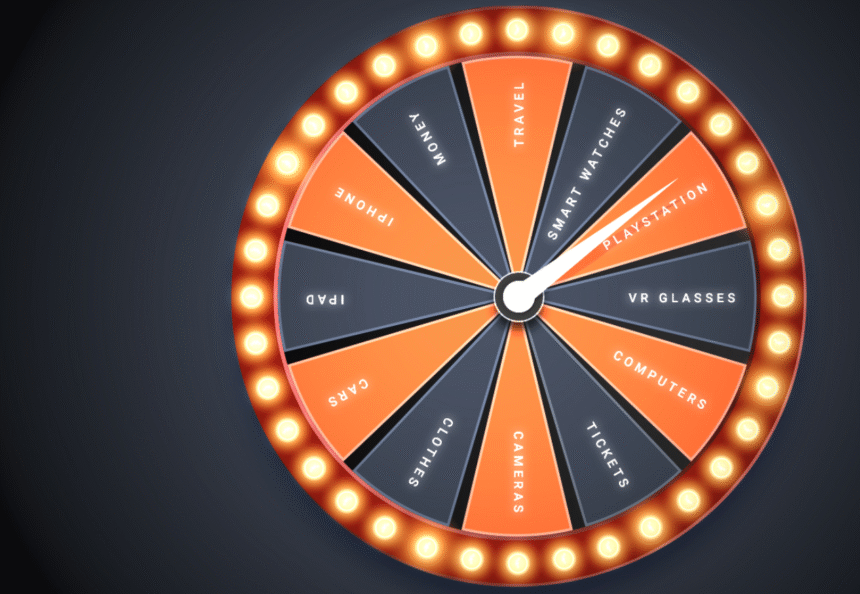Sweepstakes casinos are rapidly becoming one of the most talked-about trends in online gaming across the United States. Offering players the chance to win real cash prizes without technically gambling, these platforms are reshaping the way Americans engage with casino-style entertainment — especially in states where traditional online casinos remain illegal.
But are sweepstakes casinos legal? That question has sparked debate among lawmakers, regulators, industry experts, and players alike. Operating in a gray area of U.S. gaming law, sweepstakes casinos rely on promotional models and virtual currency systems that allow them to offer slots, blackjack, roulette, and more.
This article takes a deep dive into the current legality of sweepstakes casinos in the U.S., examining how they operate, where they’re allowed, and the legal framework that makes them possible.
Where to Play Sweepstakes Casinos Legally
If you’re curious about trying a sweepstakes casino for yourself, the good news is that they’re legal in most U.S. states — and many platforms offer daily login rewards and no-purchase bonuses to get you started.
You can explore a full list of sweeps casinos with daily login bonus to see which options are available in your state. These platforms provide virtual coins to play games, and in many cases, allow you to redeem winnings for real cash once certain conditions are met.
It’s a great way to enjoy casino-style gameplay risk-free — especially if you’re in a state where traditional online gambling is restricted.
What Are Sweepstakes Casinos and How Do They Work?
At first glance, sweepstakes casinos look and feel a lot like regular online casinos. They offer many of the same games: slots, table games, live dealers, even virtual sports betting. The key difference? Instead of wagering real money, players use two types of virtual currency:
- Gold Coins (GC): Used for fun, recreational play with no cash value.
- Sweeps Coins (SC): Can be earned through promotions or bonuses and may be redeemed for cash prizes once a player meets specific requirements.
Most platforms allow users to obtain Sweeps Coins through free daily bonuses, social media giveaways, or by purchasing Gold Coin packages, which often come with SC as a free “bonus.” This model is designed to comply with U.S. sweepstakes laws, which prohibit games that involve real-money wagering — but allow for promotional contests where no purchase is required.
The reason sweepstakes casinos can legally operate in many states comes down to how they avoid one key legal element: consideration — the act of paying to play. As long as a platform offers a no-purchase necessary entry method (such as free daily logins or mail-in requests), they sidestep the definition of gambling under federal and most state laws.
Next, we’ll explore the legal framework that underpins this loophole — and why it’s drawing increasing scrutiny.
Why They’re Technically Legal
To understand why sweepstakes casinos operate legally in most U.S. states, it helps to look at the three-part test that defines illegal gambling under U.S. law:
- Prize: Something of value is awarded.
- Chance: The outcome depends on luck rather than skill.
- Consideration: The participant pays to play.
Sweepstakes casinos eliminate the “consideration” element by ensuring that no purchase is required to participate. Instead of directly betting with real money, players use Sweeps Coins, which are often awarded through free bonuses like:
- Daily login rewards
- Social media contests
- Mail-in requests (Alternate Method of Entry or AMOE)
Players can also buy Gold Coin packages for entertainment purposes, with Sweeps Coins offered as a complimentary gift — not a direct purchase. This setup allows operators to technically comply with sweepstakes and promotional contest laws in most states, including those that prohibit real-money online gambling.
However, just because these platforms are “legal” in most places doesn’t mean they’re regulated in the same way as licensed online casinos. They operate in a legal gray area, which is why some states are now taking a closer look.
A State-by-State Overview
As of mid-2025, sweepstakes casinos are legal in 46 U.S. states, though the level of access and prize redemption rights can vary. Here’s a breakdown based on the most recent updates:
States Where Sweepstakes Casinos Are Legal and Fully Operational:
Examples include California, Texas, Florida, Georgia, and Illinois — large states where traditional online gambling is banned or heavily restricted. In these locations, players can freely participate in promotional sweepstakes models and redeem prizes.
States With Restrictions or Limited Access:
- Idaho: Players can only use Gold Coins; Sweeps Coins (and thus, prize redemption) are prohibited.
- New York, Nevada, Kentucky, and Louisiana: Some operators avoid these states due to recent cease-and-desist orders or pending legislation.
States Where Sweepstakes Casinos Are Banned or Effectively Inaccessible:
- Washington – Explicit ban on sweepstakes-based prize gaming.
- Michigan – Crackdown in 2023 forced most operators out of the state.
- Montana – A new law takes effect in October 2025, formally outlawing the sweepstakes model.
States With Pending Anti-Sweeps Legislation (2025):
- New Jersey – Bill passed in the legislature, awaiting the governor’s signature.
- Connecticut, Massachusetts, and California – Proposed bills targeting sweeps model.
- Louisiana – AG declared the format illegal; operators voluntarily exited.
Despite these developments, most states still allow players to legally enjoy sweepstakes casinos — for now. But that may change, as enforcement pressure grows.
Legal Risks and Regulatory Pushback
Sweepstakes casinos may be riding a legal wave — but that wave is starting to break under increased scrutiny from lawmakers, regulators, and the broader gambling industry.
Regulatory Concerns
- The American Gaming Association (AGA) has urged states to investigate sweeps casinos, citing the lack of consumer protections, taxation, and age enforcement seen in regulated platforms.
- Unlike licensed iGaming sites, many sweepstakes casinos don’t follow strict KYC (Know Your Customer) or AML (Anti-Money Laundering) protocols unless cash redemptions are requested.
Legal Challenges & Lawsuits
- Several class-action lawsuits have been filed claiming that sweeps casinos are merely unlicensed gambling sites in disguise.
- Courts have yet to set a national precedent, but cease-and-desist orders have already led to operator exits in states like Michigan, New York, and Connecticut.
Substance Over Form Argument
Legal analysts — like those featured in Forbes — warn that courts may eventually apply a “substance over form” doctrine. This would mean that even if a site uses “bonus” coins and AMOE letters, it could still be considered illegal gambling if the core activity mimics a casino and consumers are effectively paying for a chance to win.
States Taking Action
- Montana’s SB555, signed in May 2025, was the first formal anti-sweepstakes law to pass this year.
- New York and New Jersey have already seen exits by major brands after AGs threatened legal action.
- Other states are reviewing their gambling definitions to determine if the sweepstakes model should be reclassified.
The trend is clear: what was once a legal workaround is now facing a growing number of legal roadblocks. Whether the industry can adapt remains to be seen.
History of Sweepstakes Casinos in the US
The sweepstakes casino model didn’t emerge overnight — it’s the result of a long evolution of U.S. gambling laws and promotional loopholes.
Early 20th Century:
Sweepstakes began as promotional tools used by companies to increase product engagement. These early contests involved prize drawings with mail-in entries and were regulated under state promotional sweepstakes laws.
2000s: The Internet Café Era
In the early 2000s, internet sweepstakes cafés popped up in states with strict gambling laws. These businesses sold phone cards or internet time and gave away “sweepstakes entries” to play casino-style games on-site — games that closely resembled slots and video poker.
Eventually, many courts ruled these operations illegal, citing them as thinly veiled gambling. States like Mississippi, Florida, and Ohio passed laws to shut them down entirely.
2010s–Present: The Digital Shift
Operators adapted by moving sweepstakes models online, using dual virtual currencies and mail-in options to stay within the law. The 2012 launch of Chumba Casino by VGW (Virtual Gaming Worlds) is widely recognized as the beginning of the modern sweepstakes casino era.
By 2025, the industry has exploded in popularity, attracting millions of U.S. users and generating billions in annual gross handle. But with popularity comes scrutiny — and now, states are reexamining whether this digital workaround still qualifies as a promotional game.














